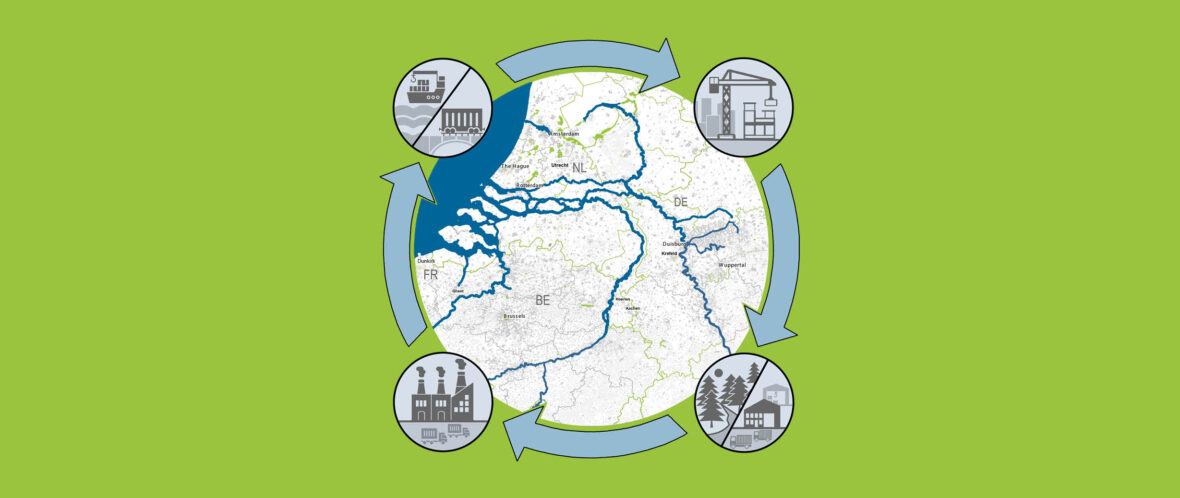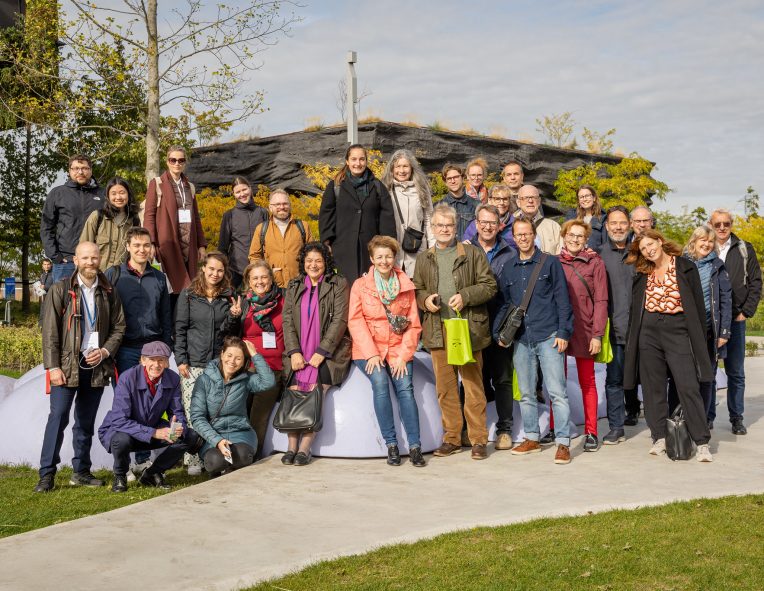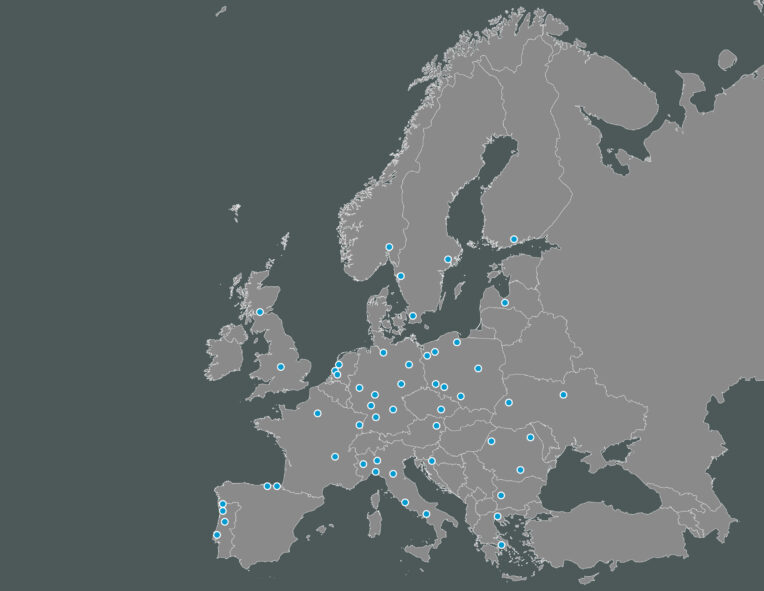Interreg North-West Europe (NWE) project focusing on understanding the concept of a circular built environment (CBE) by finding innovative spatial solutions through collaboration at various scales within the Eurodelta.
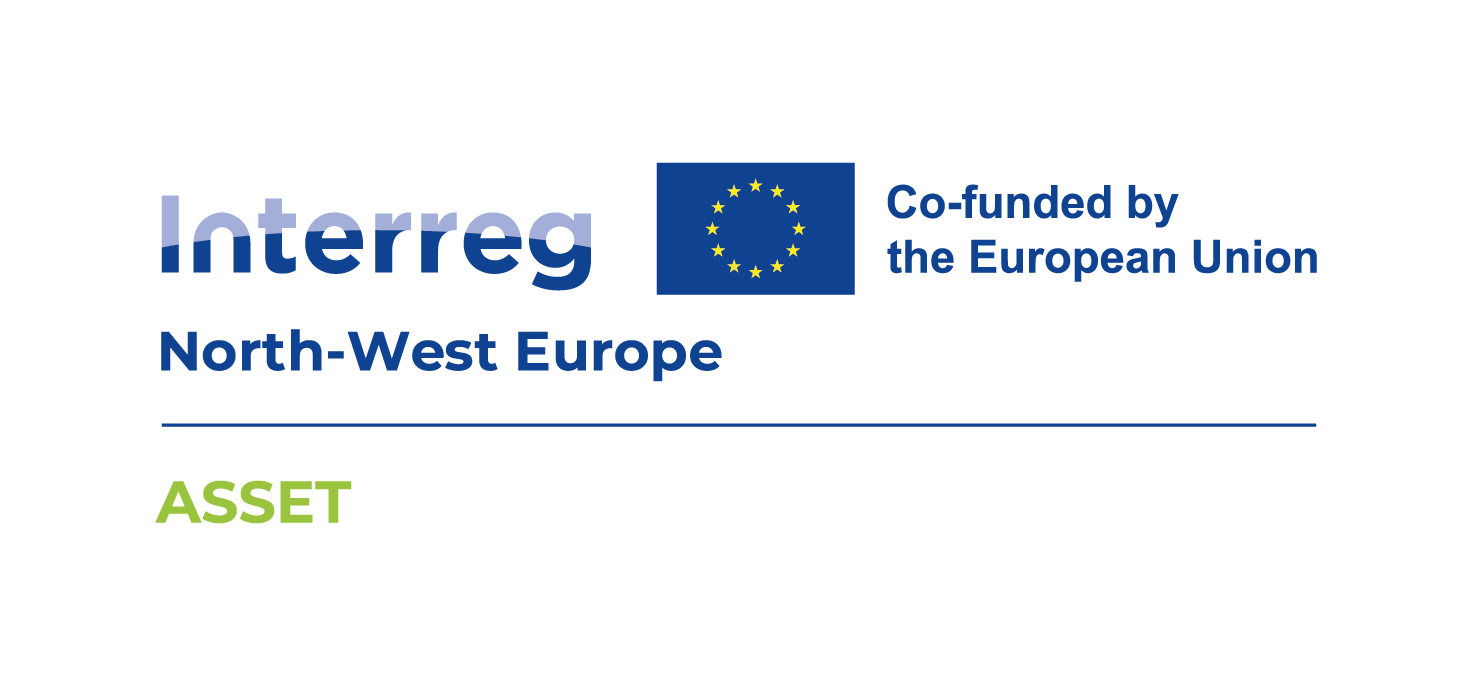
The project partners of ASSET are working on a spatial strategy for the Eurodelta to boost the circular transition of the built environment. Cities, regions, associations, and the academic field are aligning their research agendas to explore the added value of collaboration on the scale of the Eurodelta, to reach the goals of the EU Green Deal. Within the project, the project partners are investigating, together with students, the building stones for a spatial strategy at different spatial scales, including within their own administrations and the Eurodelta – based the Circular Spatial Strategy of the Province of South Holland.
The official start date of ASSET is November 2023, with a project timeline of 18 months. The project will provide learning and inspiration for METREX Members across Europe.
Key details
- WHO: City of Amsterdam (lead partner), Province of South Holland, City of The Hague, Krefeld Business, Brussels Perspective, Brussels Environment, RWTH Aachen, Delft University of Technology, METREX, Duisburg Business, Vereniging Deltametropool + over 30 associated partners from four countries (Netherlands, Belgium, Germany, Northern France) in the following sectors: government, economic/business associations, industry/logistics, academia and civil society
- WHERE: North-West Europe (specifically the Eurodelta)
- DURATION OF PROJECT: 18 months, starting date: November 2023
- ROLE IN PROJECT: Communications Manager
- SUBSIDY TOTAL AMOUNT: 798.066 euro
Background
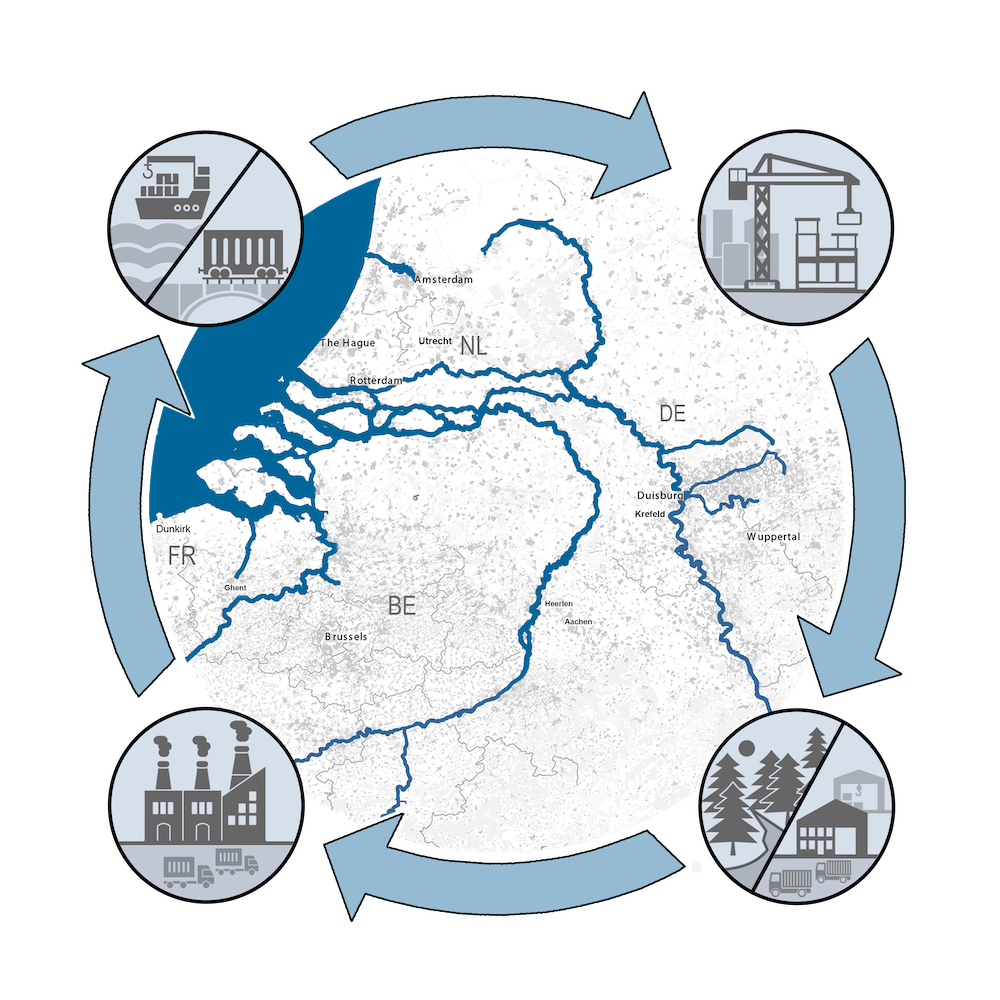
However, the so-called ‘spatial requirements’ – how much land and where it is located – is largely unknown territory. Policymakers are only beginning to realize the far-reaching spatial implications of a truly circular built environment. The objective of ASSET is to develop a strategy and action plan to understand the spatial implications of the circular transition of the built environment for the Eurodelta, as well as to come up with innovative solutions on different scales.
By using the Province of South Holland’s Spatial Circular strategy as the base of the research, the project partners focus on two main questions:
What is necessary to develop a spatial-economic strategy and action agenda for the circular transition of the Eurodelta?
Can cooperation between cities and regions in this area help to solve local spatial problems?
By focusing on the construction sector, which is responsible for 40% of the CO2 emission within the Eurodelta, the project partners build on forming an alliance of experts and students on circularity, economics, planning and mobility from the public and private sectors throughout the Eurodelta to gather information, raise awareness, create additional capacity and to discover technological innovations and capabilities within the region.
Final products
- Capacity building by creating a network of governmental institutions, the academic field and the private sector
- 2 Final publications:
- 1) Publication containing policy highlights, strategy, action plan & policy recommendations
- 2) Inspirational publication: Best practices, student work, research & Design Principles
- ASSET Conference with publication of a manifesto
Results
The project will deepen the understanding of spatial design of a circular built environment on different scales (building, neighbourhood, city, region and macroregional scale). The project partners will learn from each others’ policies, policy instruments and best practices, and discuss the added value of upscaling initiatives and aligning policies. The professionals will be inspired by student work from across the Eurodelta.
The circular transition and the growing competition for raw materials on the world market requires a new way of thinking within Europe; a way of thinking that is based on cooperation, mission driven and in functional relations.
The insights of the learnings will find their way into local circular and spatial policies, paving the way for actions and cooperation across the Eurodelta.
After 18 months, trust between different partners will be strengthened, ambitions and research questions will be aligned, and a set of actions will be developed to continue the project partners’ work on a circular built environment.
By focusing on the construction sector, which is responsible for 40% of the CO2 emission within the Eurodelta, the project partners build on forming an alliance of experts and students on circularity, economics, planning and mobility from the public and private sectors throughout the Eurodelta to gather information, raise awareness, create additional capacity and to discover technological innovations and capabilities within the region.
Contact person
Dagmar Keim – project lead of ASSET (d.keim@amsterdam.nl)
Stephen Gallagher – METREX (stephen.gallagher@eurometrex.org)

